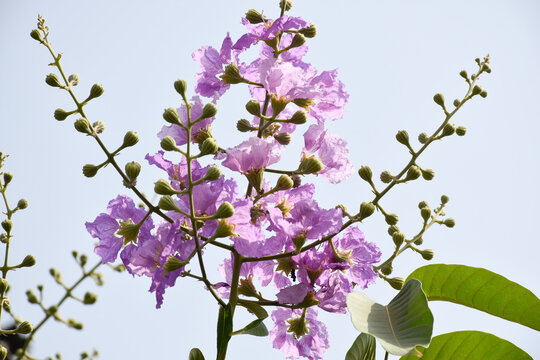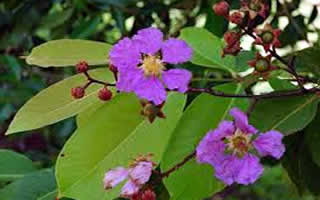Content Menu
● Introduction to Banaba Leaf Extract
>> Mechanism of Action
>>> Key Components of Banaba Leaf Extract
>> Clinical Evidence
● Introduction to Cinnamon
>> Mechanism of Action
>>> Key Components of Cinnamon
>> Clinical Evidence
● Comparison of Banaba Leaf Extract and Cinnamon
>> Mechanism Comparison
>> Clinical Efficacy Comparison
>>> Comparison of Banaba Leaf Extract and Cinnamon
● Potential Side Effects and Safety Considerations
>> Banaba Leaf Extract Side Effects
>> Cinnamon Side Effects
● Conclusion
● FAQ
>> 1. What are the primary active compounds in Banaba leaf extract?
>> 2. How does cinnamon improve insulin sensitivity?
>> 3. What are the clinical benefits of using Banaba leaf extract?
>> 4. Can cinnamon be used alongside other diabetes medications?
>> 5. Are there any side effects associated with Banaba leaf extract or cinnamon?
● Citations:
Insulin sensitivity is a crucial factor in maintaining metabolic health, particularly in preventing and managing conditions like type 2 diabetes and metabolic syndrome. Two natural extracts, Banaba leaf and cinnamon, have been studied for their potential benefits in enhancing insulin sensitivity. This article will delve into the scientific evidence supporting the use of these extracts, comparing their efficacy and exploring their mechanisms of action.

Introduction to Banaba Leaf Extract
Banaba leaf extract, derived from Lagerstroemia speciosa, has been traditionally used in Southeast Asia for its medicinal properties. It is known for its potential in managing blood sugar levels and improving insulin sensitivity.
Mechanism of Action
Banaba leaf extract contains corosolic acid, a compound that has been shown to enhance glucose uptake in cells, thereby reducing blood glucose levels. Studies in diabetic mice have demonstrated that Banaba extracts can effectively control hyperglycemia and hyperinsulinemia by reducing blood glucose, insulin, triglycerides, and glycated hemoglobin levels. Corosolic acid also inhibits gluconeogenic enzymes, which are involved in glucose production in the liver, further contributing to its blood glucose-lowering effects[5].
Key Components of Banaba Leaf Extract
- Corosolic Acid: This is the primary active compound responsible for the hypoglycemic effects of Banaba leaf extract. It increases glucose uptake in cells and enhances insulin sensitivity.
- Ellagitannins: These compounds have also been found to increase glucose uptake in isolated rat adipocytes, contributing to the overall antidiabetic effects of Banaba[7].
Clinical Evidence
A study involving type 2 diabetic rats showed that Banaba leaf extract significantly lowered blood glucose levels and improved insulin resistance indices, comparable to the effects of the antidiabetic drug gliclazide[1]. However, clinical trials in humans have shown mixed results regarding its impact on insulin sensitivity. Some studies suggest that while Banaba leaf extract can reduce fasting plasma glucose and triglycerides, its effect on insulin sensitivity may not be as pronounced[4].
Introduction to Cinnamon
Cinnamon, derived from the bark of Cinnamomum species, is widely recognized for its culinary and medicinal uses. It has been studied extensively for its potential in improving insulin sensitivity and managing blood glucose levels.
Mechanism of Action
Cinnamon's active compounds, particularly cinnamaldehyde, have been shown to enhance insulin signaling pathways, thereby improving insulin sensitivity and reducing glucose levels. Cinnamon extracts have also been found to decrease insulin resistance and improve lipid profiles[3].
Key Components of Cinnamon
- Cinnamaldehyde: This is the primary bioactive compound in cinnamon responsible for its insulin-sensitizing effects.
- Cinnamic Acid: Another compound found in cinnamon that contributes to its metabolic benefits.
Clinical Evidence
Studies have demonstrated that cinnamon extracts can lower fasting glucose, insulin, and cholesterol levels in individuals with elevated serum glucose. A meta-analysis of clinical trials showed that cinnamon supplementation resulted in significant reductions in fasting blood glucose and hemoglobin A1c (HbA1c) levels[3]. Additionally, cinnamon's water-soluble extracts, such as Cinnulin PF, are considered safer and more effective for improving insulin sensitivity without the risks associated with high doses of whole cinnamon[3].

Comparison of Banaba Leaf Extract and Cinnamon
Both Banaba leaf extract and cinnamon have shown promise in improving insulin sensitivity and managing blood glucose levels. However, their mechanisms of action and clinical efficacy differ slightly.
Mechanism Comparison
- Banaba Leaf Extract: Primarily acts through corosolic acid to enhance glucose uptake and reduce blood glucose levels. It also contains ellagitannins that contribute to its antidiabetic effects.
- Cinnamon: Enhances insulin signaling pathways and improves insulin sensitivity through compounds like cinnamaldehyde.
Clinical Efficacy Comparison
- Banaba Leaf Extract: Clinical trials have shown significant reductions in fasting plasma glucose and triglycerides, but insulin sensitivity was not significantly improved in one study.
- Cinnamon: Consistently shown to reduce fasting glucose and improve insulin resistance in various clinical trials.
Comparison of Banaba Leaf Extract and Cinnamon
| Feature | Banaba Leaf Extract | Cinnamon |
| Active Compounds | Corosolic Acid, Ellagitannins | Cinnamaldehyde, Cinnamic Acid |
| Mechanism | Enhances glucose uptake, reduces blood glucose | Improves insulin signaling, reduces insulin resistance |
| Clinical Efficacy | Reduces fasting glucose, triglycerides; mixed results on insulin sensitivity | Consistently improves insulin sensitivity, reduces fasting glucose |
Potential Side Effects and Safety Considerations
Both Banaba leaf extract and cinnamon are generally considered safe, but they can have side effects and interact with other medications.
Banaba Leaf Extract Side Effects
- Hypoglycemia: Banaba can lower blood sugar levels, posing a risk of hypoglycemia, especially when combined with other diabetes medications[4].
- Allergic Reactions: Some individuals may experience allergic reactions, such as skin rashes or itching[4].
- Gastrointestinal Issues: High doses may cause nausea, diarrhea, or stomach cramps[4].
Cinnamon Side Effects
- Gastrointestinal Disorders: Common side effects include stomach and bowel disorders, as well as allergic reactions[2].
- Coumarin Toxicity: High doses of cinnamon can lead to coumarin toxicity, which may cause liver damage or interact with medications[2].
Conclusion
Both Banaba leaf extract and cinnamon have potential benefits for improving insulin sensitivity and managing blood glucose levels. While Banaba leaf extract is effective in reducing blood glucose and triglycerides, cinnamon consistently shows improvements in insulin sensitivity across various studies. The choice between these extracts may depend on individual health needs and the specific metabolic parameters being targeted.

FAQ
1. What are the primary active compounds in Banaba leaf extract?
The primary active compounds in Banaba leaf extract are corosolic acid and ellagitannins, which contribute to its antidiabetic effects.
2. How does cinnamon improve insulin sensitivity?
Cinnamon improves insulin sensitivity by enhancing insulin signaling pathways through compounds like cinnamaldehyde.
3. What are the clinical benefits of using Banaba leaf extract?
Banaba leaf extract has been shown to reduce fasting plasma glucose, triglycerides, and very low-density lipoprotein (VLDL) in clinical trials.
4. Can cinnamon be used alongside other diabetes medications?
Yes, cinnamon can be used alongside other diabetes medications, but it is advisable to consult a healthcare provider to avoid potential interactions.
5. Are there any side effects associated with Banaba leaf extract or cinnamon?
Generally, both Banaba leaf extract and cinnamon are considered safe with minimal side effects reported in clinical studies. However, it is always recommended to consult a healthcare provider before starting any new supplement.
Citations:
[1] https://tjnpr.org/index.php/home/article/download/4398/4527/9089
[2] https://pmc.ncbi.nlm.nih.gov/articles/PMC8433798/
[3] https://diabetesaction.org/medicinal-plants
[4] https://naturmedscientific.com/banaba-leaf/
[5] https://www.casi.org/node/783
[6] https://www.healthline.com/nutrition/banaba-leaf
[7] https://pmc.ncbi.nlm.nih.gov/articles/PMC6323847/
[8] https://www.webmd.com/vitamins/ai/ingredientmono-1089/banaba






























